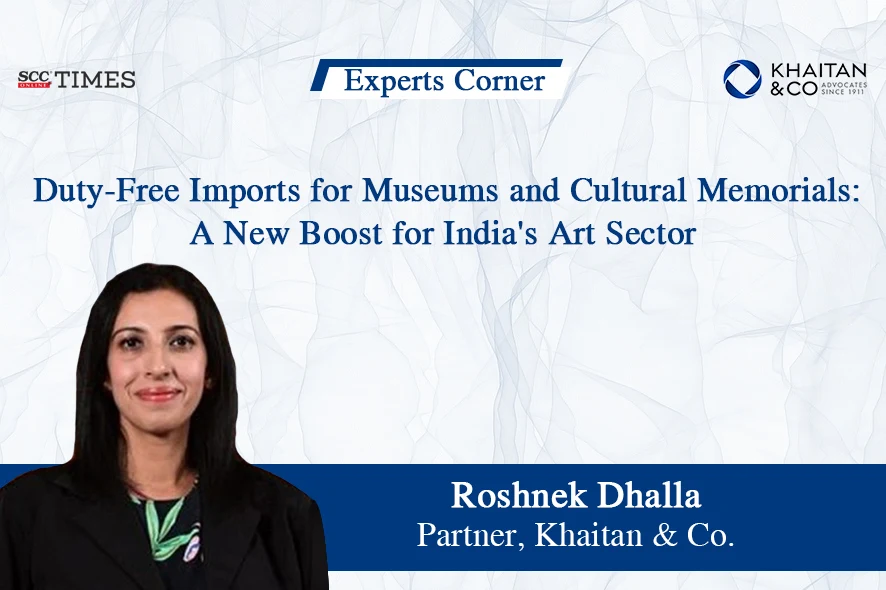In a significant boost to India’s art and cultural landscape, the Central Government has announced a landmark exemption on Customs duties for artworks, antiquities and public memorials imported for public display. Issued via Notification No. 29/2025-Customs dated 9-5-2025 [G.S.R. 302(E)]1, the newfound policy marks a monumental step toward strengthening the country’s museum infrastructure and promoting greater access to global artistic and cultural heritage.
The new exemption primarily targets imports that are intended strictly for public benefit, ensuring that cultural materials entering India contribute to education, heritage appreciation and civic memory, rather than private enrichment. By removing the fiscal barrier of customs duties for qualified institutions, the move is expected to facilitate the acquisition of rare and valuable works by museums and public cultural bodies, aligning with India’s broader cultural diplomacy and heritage preservation goals.
The exemption applies to three main categories of imports:
(1) Artworks, including paintings, sculptures and statuary, brought in specifically for public exhibition in a museum or art gallery.
(2) Memorials of a public character, including structural materials, intended to be permanently installed in public places.
(3) Antiquities, as defined under the Antiquities and Art Treasures Act, 19722, imported for display in public institutions such as museums and galleries.
In each case, it is of paramount importance for the import to serve a public and non-commercial purpose. The Notification strictly prohibits private or profit-oriented use of these items, ensuring public access and accountability. To avail the exemption, eligible institutions must meet a strict compliance framework designed to safeguard the public nature of the imports.
Organisations which operate an existing public museum or art gallery are eligible for the exemption. The institution must be either the actual owner or direct purchaser of the imported work. Private collectors or commercial entities are barred from availing this exemption. For antiquities, an additional step of registration of the imported item with the Archaeological Survey of India (ASI) within 90 days of import is required.
Overall, the exemption is expected to benefit public museums, cultural trusts and heritage bodies by lowering acquisition costs and enabling the import of internationally significant works. It reflects a noteworthy effort to enhance India’s cultural presence globally, while promoting institutional collection of works of art and fostering cultural education domestically. By reinforcing procedural safeguards, including Ministry certification and ASI registration, the Government ensures that this exemption does not lead to misuse but is instead channelled towards strengthening public institutions and cultural literacy.
The Notification signals a progressive shift in modern cultural policy and paves the path to expand collections, global collaborations, and enhanced cultural infrastructure in India. Now is the time for museums, public art projects and cultural foundations to revisit their acquisition strategies and make the most of this forward-looking policy.
*Partner, Khaitan & Co.
1. Ministry of Finance, Department of Revenue, Notification No. 29/2025-Customs, G.S.R. 302(E) (Notified on 9-5-2025).


